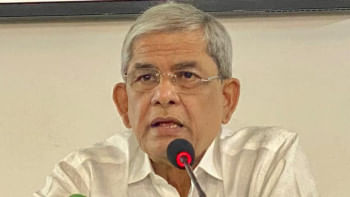Remittance in slow lane

Remittance inflow slid about 5 percent year-on-year in the first ten months of the fiscal year on the back of a shrinking pool of migrant workers.
Between July last year and April this year, the country received $11.73 billion in remittance in contrast to $12.31 billion registered for the same period of last fiscal year, according to data from the central bank.
The drop is in keeping with the trend since last August, when it turned negative after sluggish growth since the first half of fiscal 2012-13.
Only 4.5 lakh migrants managed oversees jobs in 2013, down by more than 33 percent from 2012, according to the Refugee and Migratory Movements Research Unit (RMMRU). The decline is accompanied by a large number of returning migrants. RMMRU blamed the shrinking pool of migrant workers to the government's failure in re-opening the labour markets in Saudi Arabia, the United Arab Emirates and Kuwait through diplomatic channels for Bangladeshi migrants.
However, remittance showed a spike in April, increasing 3.36 percent year-on-year to $1.23 billion.
Zahid Hussain, lead economist of the World Bank's Dhaka office, said an upward trend in remittance, as shown in April, in the coming months would not be enough to register a positive remittance growth for the whole year.
If the trend continues into the next fiscal year, a positive remittance growth should be expected.
Stemming remittance decline will require rejuvenating manpower exports by finding new markets and addressing Bangladesh-specific issues in existing markets so as to reduce the number of returnees and unemployment of workers abroad, Hussain said.
The UAE, Saudi Arabia and Kuwait continue to keep their doors shut to Bangladeshi labour because of the alleged involvement of some Bangladeshi workers in smuggling, visa forgery, swindling and other crimes. These countries have continued to recruit workers from India, Pakistan and Sri Lanka.
Strengthening of the institutional capacity is needed for speeding up the issuing of machine readable passports (MRPs) for migrant workers, who are experiencing difficulties in renewing work permits without MRPs, Hussain said.
Saudi Arabia has initiated the practice of signing Standard Employment Contract with sending countries, which India, the Philippines and Sri Lanka have already signed to ensure safety and rights of migrant workers.

 For all latest news, follow The Daily Star's Google News channel.
For all latest news, follow The Daily Star's Google News channel. 



Comments